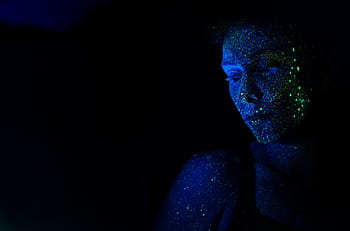Face painting as an art form dates back thousands of years to the time when some societies employed it for battle and hunting. Face painting is a legitimate art form, and makeup artists who utilize human faces as their canvases to create fictional creatures or otherworldly beings are truly gifted. During key ethnic celebrations and religious rites, the majority of tribes shop face paint & body paint for decorations.
This article discusses the advantages and disadvantages of face painting.
Face Painting
A fascinating, alluring, and lovely art form is face painting. Face painting booths are frequently found at fairs, carnivals, and charity events. The complete face is modeled after a particular character in this kind of artwork. Only one side of the face is covered when someone has cheek art.
Advantages of Face Painting
1) It’s a cheap and enjoyable approach to delve into the worlds of creativity and imagination.
2) Extends the Limits of the Imagination.
You can go to a new world and take on the identities of fictional characters thanks to face painting. The highest form of creativity is the ability to change oneself into something or someone else. The only restriction on what you can create with just a little face paint and a few brush strokes is your creativity!
3) Promotes Creativity.
Face painting allows you to become anything your imagination allows you to be when you are the one doing the transformation. A three-dimensional canvas gives you the chance to experiment with a huge range of artistic possibilities that you would not have come across in your typical artistic practices. You are encouraged by face painting to venture outside the realm of conventional sketching and painting. It’s time to step out of your artistic comfort zone.
4) Helps you understand that mistakes are not the end of the world.
Worrying about what will happen if and when you make an error is one of the most difficult aspects of learning a new skill. If you paint on a line or color that you don’t like, it may be easily removed. Water alone can be used to remove the vast majority of face paints. Some may require a wipe or soap to entirely remove, although they are easy to wipe off.
5) A successful career can be achieved through face painting.
Numerous employment options are available to you if you learn to face paint. You have the option to study theater and makeup arts in addition to becoming a professional face painter. It’s not always just a hobby to paint people’s faces. It could be the first step toward realizing your aspirations and professional objectives.
6) A great approach to acquaint yourself with the world of imagination and character creation is through face painting.
Disadvantages of Face Painting
1: Due to the paint’s ability to stop your skin from breathing, prolonged usage of any kind of body paint is bad for your skin. Any paint pigment will block the skin’s pores, which might foster the growth of pimples, rashes, and other blemishes.
2; It’s crucial to refrain from decorating your face or body with items that aren’t meant to be used on skin, even if face painting can be entertaining at events like music festivals, especially for kids enjoying a fair or carnival. It opens the door to serious rashes, allergic reactions, and even worse.
3) You really don’t know where the paint comes from or what’s in it if you pay to get your face painted at special events, which is an issue.
50% of face paints and cosmetics contain ingredients with a documented link to cancer, hormone disruption, developmental toxicity, or learning issues. The decision of whether to apply anything potentially hazardous to your skin is a coin toss. Lip balms, nail polish, and makeup kits marketed to kids contain at least one ingredient or contaminant that has been linked to cancer.
Conclusion
Never use paint on your face that isn’t designated for that purpose. If you’ve never used a face painting product before, you still don’t know how you or your child will respond, even if the product’s contents list is complete. If you have sensitive skin, this is very crucial.
You should still make an effort to use as little paint as you can even if the product doesn’t irritate your skin. Even skin-safe paints might irritate your face and eyes if they are applied too thickly.
































